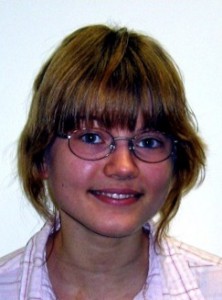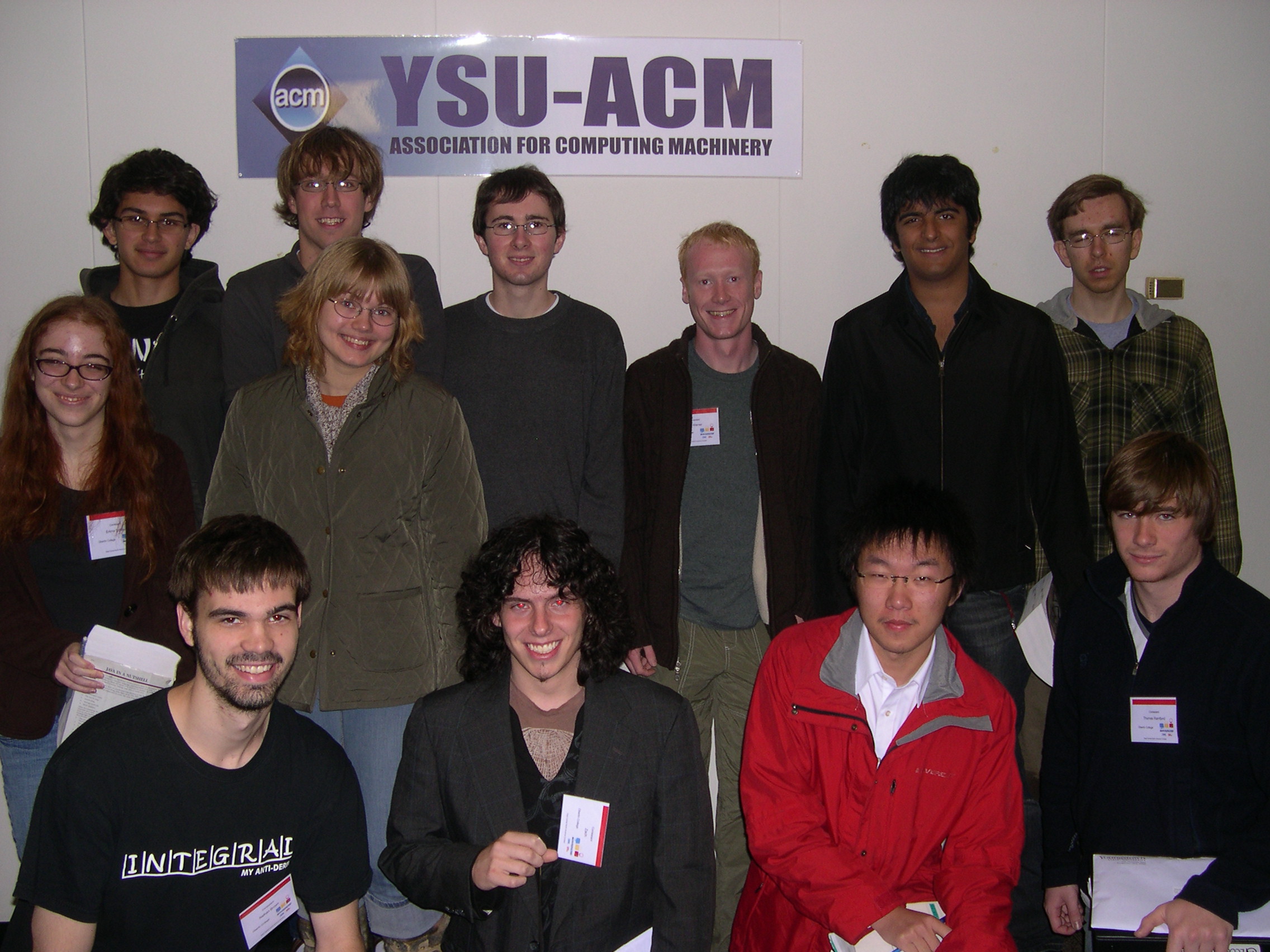Here is the schedule for our upcoming 25th anniversary weekend:
On-campus summer research opportunities in Security and Systems
March 4th, 2010
Professor Kuperman is looking for students interested in doing paid, on-campus research work in CS this summer. Funding is for 8-10 weeks of work, up to 40 hours per week, with some flexibility as to scheduling.
I have 3 different projects I’ll be working on this summer. They are all systems or security related:
1. Testing and releasing a security monitoring tool as an open-source project
2. Refining an isolated virtual network lab environment for the security course
3. Network measurement and troubleshooting (in conjunction w. Case Western)
Useful background could include C/systems programming, Linux/Unix experience, Python programming, shell scripting, security topics, system administration, and/or computer networking. Each project has different needs, and you only need a subset of these topics and motivation to learn more to be able to help.
If you are interested in any of these projects send me an email (Benjamin.Kuperman@oberlin.edu) letting me know which projects you are interested in and your relevant background. Also email me if you have questions or just want more info. Graduating seniors are eligible to participate.
Computational Thinking Across the Curriculum: The Power and the Peril
March 2nd, 2010
Computational Thinking Across the Curriculum: The Power and the Peril
by Robert M. Panoff
Shodor Educational Foundation
Place: Craig Lecture Hall
Time & Date: Monday evening, March 15 @ 7:30
Refreshments to follow
Sponsored by the Oberlin Modeling Initiative & Sigma Xi
ABSTRACT: Students and faculty at all education levels are clearly spending much more of their days interacting with computing and communication tools than with each other. Is this good? Are all uses of technology in education helpful, and if not, how does one separate the benefits from the burdens? We will explore how technology enables dynamic representation in the sciences, arts, and humanities, giving us the opportunity to be more fully human as we seek new knowledge in service to society.
Moving “beyond PowerPointless-ness,” we have the opportunity to demonstrate that effective use of computing really matters. Computing “matters” because quantitative reasoning, computational thinking, and multiscale modeling are the intellectual “heart and soul” of 21st Century science and therefore are the essential skills of the 21st Century workforce. Computing “matters” because we can apply the power of interactive computing to reach a deeper understanding and of math and science and their role in understanding the world.
We will explore a transformation in STEM (Science, Technology, Engineering, Mathematics) education, supported by interactive computing resources, promoting a dynamic encounter with our world through guided discovery. A world-class education requires world-class resources, and all math and science teachers should be able to bring interactive modeling environments to their own teaching practice. We will explore a variety of free and low-cost sources for modeling tools from the Computational Science Education Reference Desk, a pathway project of the National Science Digital Library (http://www.nsdl.org).
Designing an Environment to Create Mobile Musical Instruments
February 17th, 2010
The Computer Science Department will host
George Essl Assistant Professor for Electrical Engineering & Computer Science and Music
University of Michigan
Monday Feb. 22, 2010 4:30p.m. King 306 – Refreshments at 4:00
Designing an Environment to Create Mobile Musical Instruments
CSMC Elections!
February 11th, 2010
Come to vote and see the candidates for CSMC (the Computer Science Majors’ Committee) on Wednesday, Feb 17th, at noon, in King 135.
Yes, CSMC is holding elections for this spring and the coming year. It is an exciting time to get involved, particularly as it is the 25th anniversary of the Computer Science department, and much input from the students is wanted and needed.
Online nominations will be accepted until Wednesday, Feb. 17th. Candidate statements and official voting session will be held then (the 17th) during lunchtime in the downstairs lab!
See https://www.cs.oberlin.edu/~csmc/elections.php for information and an online nomination form.
2009 Game Design Showcase
January 17th, 2010
Member of CS 261 (Game Design) present their final projects on December 11th. Over 100 students and faculty members from across campus stopped by to play “Moon Prison”, “A City Worth Saving”, and “Starbeat”.
See photos in the gallery: 2009 Game Showcase
2010 Summer Research Opportunities
January 12th, 2010
- Computational Social Science at Carleton College with Alexa, Tom, and David
Alexa Sharp and Tom Wexler are looking for a total of up to 2 or 3 students interested in a seven-week program on Computational Social Sciences at Carleton during Summer 2010 (June 21st through August 6th). The program will focus on the application of (both theory- and implementation-based) computer science to social networks and game theory, and it will be co-advised by Alexa, Tom, and David Liben-Nowell (Carleton College). The program will primarily involve students of Carleton and Oberlin, and we hope to include one or two students from other similar liberal arts schools in the program if circumstances permit.
Students will work in groups of three or four on computational problems related to social networks and algorithmic game theory, working closely with all three faculty members. Groups will have different focuses: some will be more implementation based (working with real large-scale social network data to better understand patterns of friendship), some will be more theoretical (for example, working to understand what the strategic implications of network structure are for certain types of network games). You should expect to read recently published papers, develop and attempt to prove conjectures about various problems or algorithms, write programs to generate and test hypotheses, and read about new techniques in computer science to tackle these questions.
Students should have taken at least CS 150 and CS 151. For more theoretical groups, you’ll want CS 280. More CS is better, as is more math, and knowledge of Game Theory and Discrete Mathematics and helpful, but these are not requirements.
These are paid research positions, and travel and housing expenses will be subsidized. For details on how to apply, or further questions, please contact Alexa (alexa.sharp@oberlin.edu) or Tom (tom.wexler@oberlin.edu).
- The Department of Computer Science and Engineering at Washington University in St. Louis is running a Research Experiences for Undergraduates program over the summer of 2010. Participants will be paid a stipend for the 10 weeks of the program, and we will provide assistance in finding on-campus housing for the duration of their stay in St. Louis. Deadline February 21. Program Dates: May 31-august 12, 2010
Check out more details of the Summer 2010 program, see the sorts of projects you could be working on, and send in an application.If you have any questions about the program that aren’t answered on these web pages, send us an email at reu@cse.wustl.edu, and we can answer them for you.
- Depauw University – REU summer Research. Stipend of $4,500
Information and application packet due March 15th. Program runs from May 26-July 30,2010
- Computing Research for Undergraduates
Socially Relevant Computing Summer 2010 at UNC Charlotte
June 1-July 30, 2010 Application deadline: March 15, 2010
Kuksenok selected for Honorable Mention in CRA 2010 Undergraduate Research Award
December 4th, 2009

Katie Kuksenok
Congratulations to Katie Kuksenok for being selected for an Honorable Mention in the Computing Research Association’s Outstanding Undergraduate Research Award competition for 2010!
Katie worked with Oberlin CS alum, Professor Jennifer Mankoff at Carnegie Mellon University’s Human-Computer Interaction Institute. Their project explored how individuals with chronic illness, and their caregivers, use online resources such as social websites.
More information can be found at the Research on Chronic Illness on the Web website and on Katie’s Summer 2009 DREU Research Journal.
MCURCSM 2009
November 24th, 2009
This past weekend, Oberlin College hosted the 2009 Midstates Conference for Undergraduate Research in Computer Science and Mathematics (MCURCSM). Over 40 students and faculty from 12 colleges and universities gathered to hear students make presentations about their research accomplishments this past summer. For more information, see the conference website:
https://cs.oberlin.edu/mcurcsm2009/
See photos in the gallery: MCURCSM 2009
2009 ACM Programming Contest
November 23rd, 2009

2009 Oberlin ACM contest teams
The Oberlin Computer Science programming teams had another successful trip to the ACM Programming Contest on Saturday, October 30th.
Four teams of three students competed in the contest: O(bees) (Michael Brooks, Michael Stevenson, Siyang Wu), O-nage (Katie Kuksenok, Ted Warner, Zach Levine), Oberlin Oriented Programmers (Kiron Roy, Emma Conner, Nathan Brown), and Foo Of Oberlin (Thomas Ramfjord, Brendan Chambers, Madhav Kaushish).
O(bees) and O-nage solved 3 problems and Oberlin Oriented Programmers and Foo Of Oberlin solved 2 problems. Overall among 113 teams, they placed 17th, 22nd, 34th, and 44th, respectively. In addition, O(bees) and O-nage ranked 2nd and 4th among the 43 teams participating at the Youngstown State location. Both of those teams were recognized at the post-contest banquet and won backpacks.
Congratulations to all!
See photos in the gallery: 2009 ACM Programming Contest
